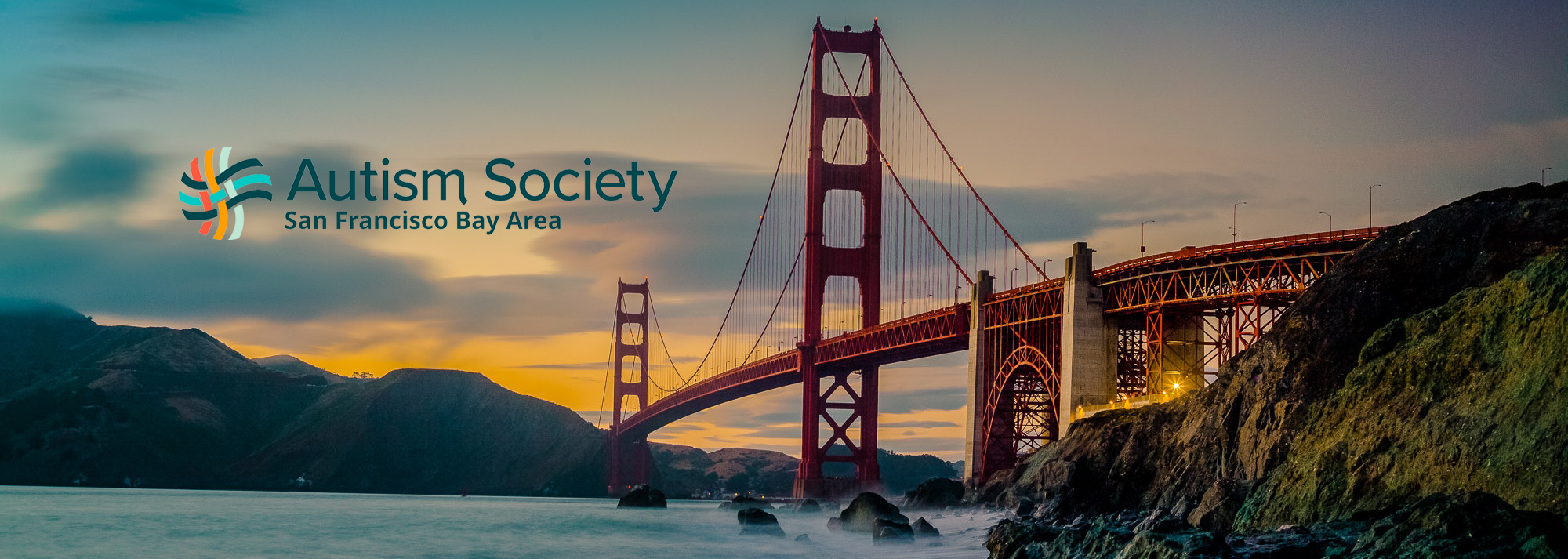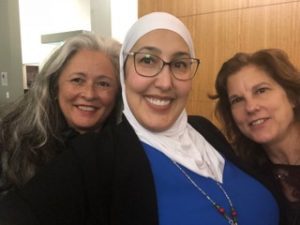
Our Mission
The Autism Society San Francisco Bay Area creates connections, empowering everyone in the Autism community with the resources needed to live fully. Our mission is to grow a stronger Bay Area autism community. By creating a robust hub of information, resources, networks, and advocacy, we help advance common goals for the Bay Area’s 20,000+ autism families. Rather than serving as a direct service provider to individuals with autism and related disabilities, we seek to provide a community focal point.
About Us
Autism Society San Francisco Bay Area (SFASA) is a grassroots, volunteer-run nonprofit organization of parents, family members, friends and professionals striving to build a stronger, more connected and influential Bay Area autism community. We began in 1967 and cover the six major San Francisco Bay Area counties: Alameda, Contra Costa, Marin, San Francisco, San Mateo and Santa Clara. We are an affiliate of the Autism Society of America.
In 2014, SFASA reinvented itself to focus on improved community outreach and on issues related to addressing the dire need to expand the limited lifespan care options for the dramatically increasing numbers of adults with autism. Rather than serving as a direct service provider to people with autism, we act as a hub for the broader autism community. Our activities include:

Information
A popular website, robust resources lists,
information & referrals, newsletter, blog,
publications, and social media.

Networking & Education
Annual adult autism conference and many
events, with an eye toward strengthening
connections and knowledge within communities.

Advocacy
Fearless advocacy and outreach to the public
and policymakers; acting as an authoritative
voice on autism in the media and public fora.
We Take a Serious View of Autism
A Serious Developmental Disability
We celebrate the many joys and gifts our loved ones with autism bring. But we are realistic and forthright about their limitations and need for lifespan support. We recognize that autism is clinically defined by having a serious mental impairment and as a serious developmental and learning disability that interferes with normal functioning.
We follow the scientific consensus that what we call “autism” actually encompasses a vast number of different conditions, with different etiologies, neurological pathways, co-morbidities, and functional outcomes. As a consequence, we believe no one person with “autism” has any right to speak for another who has been handed the same label. We recognize the inherent confusion and conflict within the word “autism,” and we recognize that what is appropriate and true for some subset of autisms may not apply to others.
Not a Unitary Condition
Stands Apart from Other Disabilities
Autism often presents additional challenges, vulnerabilities and needs beyond those presented by other disabilities, and these particular challenges, including difficult behaviors and functional limitations, must be honored and addressed explicitly.
Given the unquestionably staggering growth of serious autism cases in California and our region over the past 25 years, we believe autism should be declared an epidemic and met with the utmost sense of urgency in terms of policy, research and services. We see no negative connotation to “epidemic,” which is a term of art to describe an unexpectedly high occurrence of a condition.
Autism has Reached Epidemic Proportions in California and the Bay Area
We Are Passionate About Advocacy
In California and the Bay Area, Autism Is an Unprecedented Public Health and Social Services Crisis
We recognize the autism surge as a severe, unprecedented public health and social services crisis that demands no-nonsense dialogue, fearless leadership and sweeping policy change to facilitate expansion of economically and operationally viable care, support, program and housing options. Demand for services and supports far outstrips available supply, and the situation grows more acute each year. Given the immense challenges we face as a community, we value outspoken advocacy.
We Support the ASA Options Policy
We support and adhere to the Options Policy of the Autism Society of America, which sees each person with autism as a unique individual who, in collaboration with loved ones, may select the options most appropriate for his or her circumstances. Person-centered planning is fundamental for people with autism. Solutions must be based on individual functional needs and personal preferences and not on categorical or diagnostic labels.
The Autism Crisis Is a Shared Social Responsibility
No family or individual can face autism alone. We view lifespan care for the burgeoning autism population as a shared social responsibility.
Values and Beliefs Driving Our Governance
We Value Sound Governance
We commit to sound financial management, governance, and operations. Our board members, contractors, interns, and volunteers must commit to supporting our mission and values. We embrace the diversity of our community and do not discriminate based on race, gender, age, disability, sexual orientation, marital status, socioeconomic status, ethnic background, or religion.
Low-Cost, High-Value Projects
We value an “active volunteer” board model that provides as much benefit as possible to autism families at the lowest cost, and free when feasible. We do not charge for membership or inclusion on our mailing lists.
Continually Learning
The autism surge presents our community with unprecedented challenges. We are open-minded about new ideas and new solutions, and seek to gain knowledge continuously rather than adhering to any narrow ideology.

Social Media and Blog Comment Guidelines
The content we post reflects our Mission, Vision, and Values (MVV), which can be found above and here: https://www.sfautismsociety.org/about.html. We encourage those who engage with the SFASA community to know our MVV, as they may differ from those held by other organizations.
Almost everything in the world of autism is controversial—causes, prevalence, interventions, education, medications, social services, and more. But we strive to keep our social media and blog safe places for local autism families to participate in constructive dialogue as we share experiences and realities—including many difficult realities—across the spectrum. Commenters may disagree but they may not be disagreeable. Focus remarks on constructive substance, not personalities.
One of the most troubling and counterproductive developments in the autism field over the past several years has been a growing virulence online aimed at suppressing and denigrating perspectives inconsistent with a particular neurodiversity view of autism.The use of intimidation in lieu of mature and respectful discourse on critically important topics both polarizes and degrades our multi-faceted autism community. A culture of attack hurts autistic people as well as the many organizations striving to support them.
No bullying, personal attacks, name calling, libel, defamation, or hate speech. We reserve the right to delete comments or block commenters we see as bullying or otherwise attacking people in our community.
No PosingPlease do not recycle other people’s material or pose as an individual or entity other than yourself. You may however link to relevant content and to quote from other people’s work with attribution and any associated copyright notice and consistent with “fair use” principles of copyright law.
Please do not share anyone’s contact information or personal information in your comments or discussions.
Please do not engage in advertising, promotion, recruiting, or soliciting.
Autism Society San Francisco Bay Area is not responsible for the content or opinions posted by its users. We do not and cannot review all user content posted on this site. However, we have the right (but not the obligation) to review, screen, delete, edit and/or move any content posted, and also to block users at our discretion.

